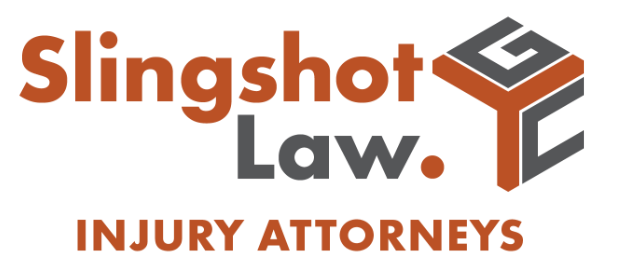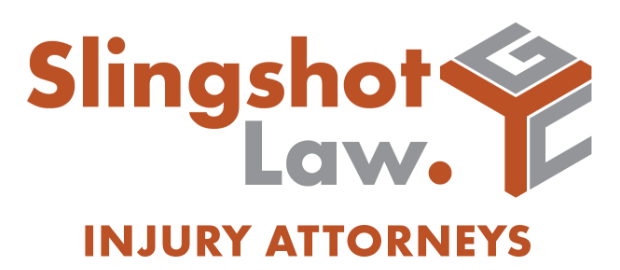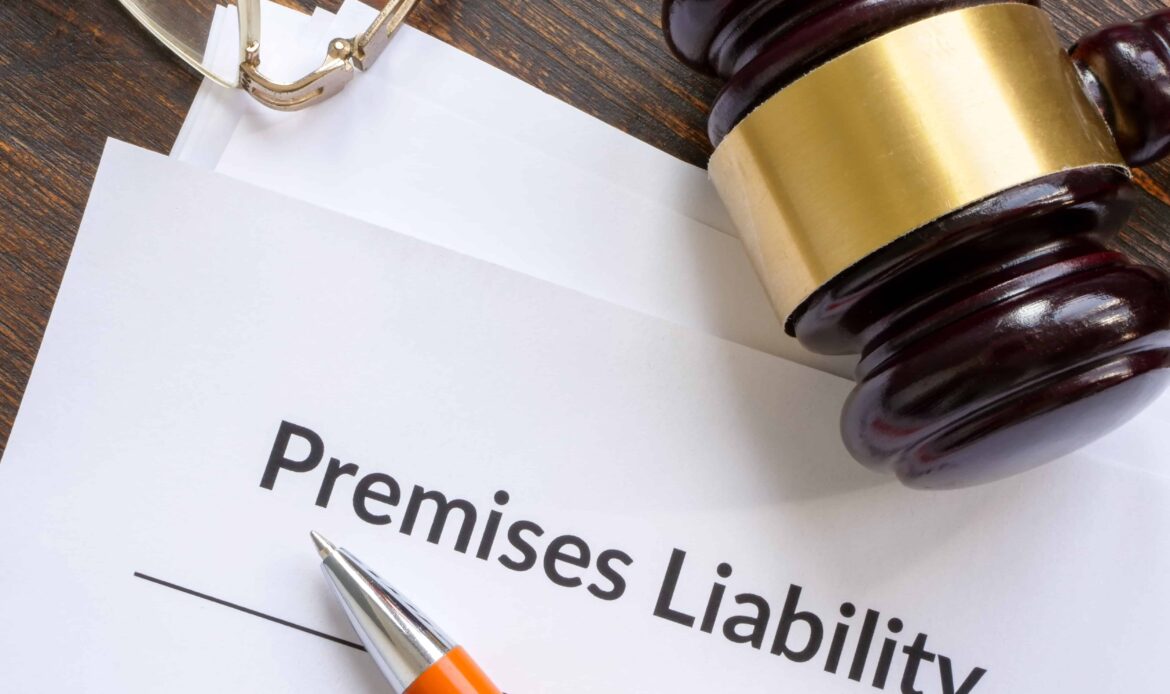Premises liability accidents refer to injuries caused by an unsafe or defective condition on someone else’s property. From a simple slip on a wet floor to more complex situations involving inadequate security, property owners have a legal responsibility to keep their premises reasonably safe for visitors. When they fail in this critical duty, the person who was injured as a result has the right to hold them accountable and seek fair compensation for their losses.
Knowing the common types of premises liability accidents and the duties of property owners can give you an idea of whether you may have a claim for compensation
Key Takeaways about Types of Premises Liability Accidents
- A property owner’s legal responsibility, or “duty of care,” often depends on whether a visitor is an invitee, a licensee, or a trespasser.
- Common types of premises liability accidents include slip and falls, incidents from negligent security, dog bites, and swimming pool accidents.
- Proving a premises liability claim requires showing the property owner knew or should have known about a dangerous condition but failed to address it.
- Compensation in these cases may cover medical expenses, lost income, and pain and suffering.
- State laws, including the statute of limitations, set strict deadlines for filing a premises liability lawsuit.
Understanding a Property Owner’s Duty of Care
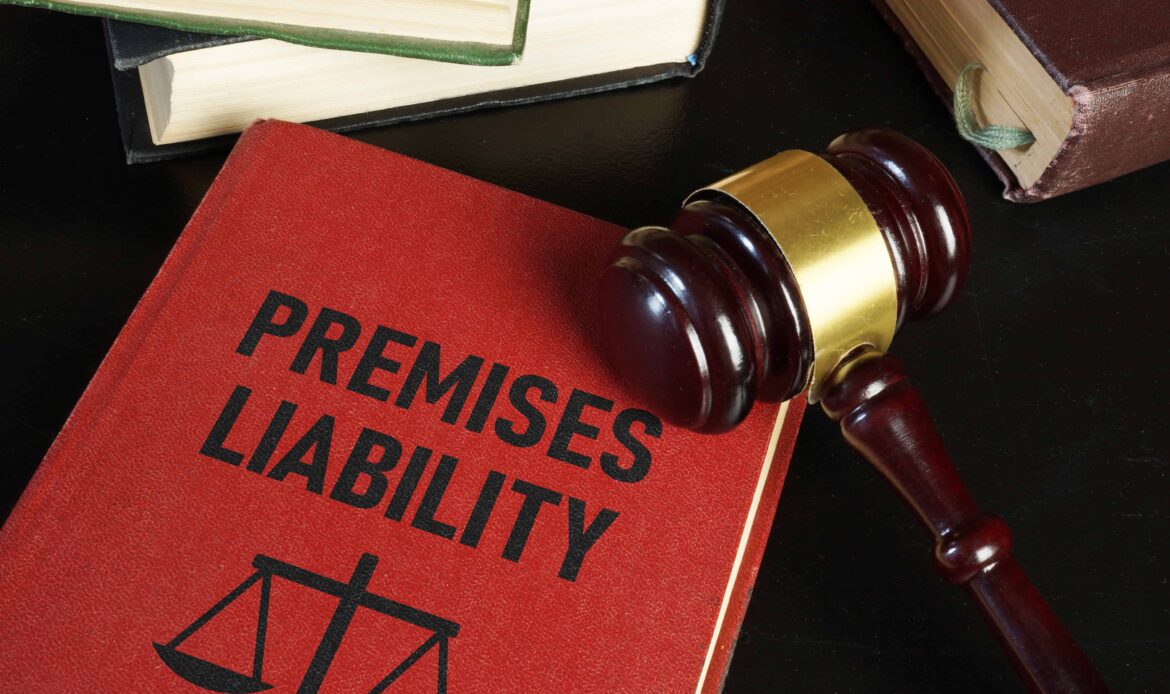
At the heart of any premises liability case is a legal concept called “duty of care.” This is a property owner’s obligation to maintain a reasonably safe environment for people on their property. However, the level of this duty can change depending on the legal status of the visitor. Courts in Texas and Colorado generally recognize three categories of visitors.
- Invitees: An invitee is someone who is on the property for the owner’s financial benefit, such as a customer in a store, a diner in a restaurant, or a fan at a concert venue in downtown Austin. Property owners owe invitees the highest duty of care. They must fix known dangers and regularly inspect the property for hidden hazards they should know about.
- Licensees: A licensee is a social guest, like a friend invited to a house party or a family member visiting for dinner. The property owner has a duty to warn a licensee of any known dangerous conditions that the guest is not likely to discover on their own. The duty is lower than for an invitee; there is no obligation to inspect for unknown dangers.
- Trespassers: A trespasser is someone who enters a property without permission. Generally, property owners do not owe a duty to protect trespassers from harm. The main exception is that an owner cannot willfully or wantonly injure a trespasser. There are also special protections for children who might be attracted to a dangerous condition on a property, a principle known as the “attractive nuisance” doctrine.
Understanding your status as a visitor is a key part of determining the property owner’s responsibility for your injuries. The specific duties are outlined in state laws, such as those found in the Texas Civil Practice and Remedies Code.
Common Types of Premises Liability Accidents
While the term “premises liability” might sound technical, it covers a wide range of familiar and unfortunate situations. When a property owner fails in their duty of care, the results can lead to serious injuries. Here are some of the most frequent types of premises liability accidents.
Slip and Fall or Trip and Fall Incidents
This is the most widely recognized type of premises liability accident. These incidents happen when a person slips, trips, or falls due to a hazard on the floor or ground. They can occur anywhere, from a grocery store in Grand Junction to an office building lobby.
Common causes include:
- Wet or freshly mopped floors without warning signs
- Spilled liquids or food debris in store aisles
- Icy or snowy walkways that haven’t been cleared
- Cracked or uneven pavement
- Loose floorboards, torn carpeting, or cluttered hallways
- Poor lighting in stairwells or parking lots
A property owner’s failure to clean up a spill or repair a broken step in a reasonable amount of time can be a basis for a claim if someone gets hurt.
Negligent Security
Property owners have a duty to take reasonable steps to protect visitors from foreseeable criminal acts by third parties. When they fail to do so, it’s known as negligent or inadequate security. This is particularly relevant for properties like apartment complexes, hotels, parking garages, and shopping malls, where crimes may be more likely to occur.
Examples of negligent security include:
- Broken locks on doors or windows
- Poor or nonexistent lighting in common areas like parking lots or hallways
- Failure to install or monitor security cameras
- Lack of trained security personnel in high-risk areas
- Not controlling access to a building or event
If a person is assaulted, robbed, or otherwise harmed by a criminal act that could have been prevented with reasonable security measures, the property owner may be held responsible.
Dog Bites and Animal Attacks
Pet owners are responsible for controlling their animals. In both Texas and Colorado, laws address the liability of an owner when their dog bites someone. Texas follows a “one-bite rule,” which generally means an owner is liable if they knew the dog had bitten someone before or had shown aggressive tendencies. Colorado, on the other hand, has a “strict liability” statute that can make a dog owner responsible for economic damages even if the dog had never shown aggression before.
A dog bite claim is a form of premises liability when the attack happens on the owner’s property, and the owner’s failure to properly restrain the animal leads to the injury.
Swimming Pool Accidents
Swimming pools can be extremely dangerous if not properly secured and maintained. Property owners, including homeowners, hotels, and community centers, must take specific precautions to prevent accidents, especially involving children.
Common issues leading to swimming pool accidents include:
- Lack of proper fencing or self-latching gates
- Slippery pool decks without non-slip surfaces
- Poorly maintained drains that can cause entrapment
- Lack of safety equipment like life preservers or a shepherd’s hook
- Failure to have a lifeguard on duty at a public pool
These accidents can result in devastating consequences, and property owners are often held to a high standard of care due to the inherent risks pools present.
Elevator and Escalator Malfunctions
When you step into an elevator or onto an escalator, you trust that it will operate safely. Building owners and maintenance companies have a duty to ensure this equipment is regularly inspected and in good working order.
Injuries can occur from:
- Sudden drops or abrupt stops
- Doors that close on a person or fail to open
- Misleveling, where the elevator stops above or below the floor, creating a trip hazard
- Clothing or limbs getting caught in escalator steps
These cases often involve complex mechanical issues, but the responsibility ultimately falls on the property owner to provide safe passage for visitors.
Fires, Floods, and Toxic Fumes
Property owners are responsible for maintaining the structural and systemic integrity of their buildings. This includes ensuring proper fire safety measures are in place and that plumbing and ventilation systems are working correctly.
Liability can arise from:
- Faulty electrical wiring that causes a fire
- Lack of functional smoke detectors or fire extinguishers
- Blocked fire exits
- Burst pipes leading to flooding and water damage or slip hazards
- Exposure to harmful substances like carbon monoxide or mold due to poor ventilation or maintenance
When an injury results from these systemic failures, the property owner’s lack of upkeep is often the central issue.
What Do You Need to Prove in a Premises Liability Claim?
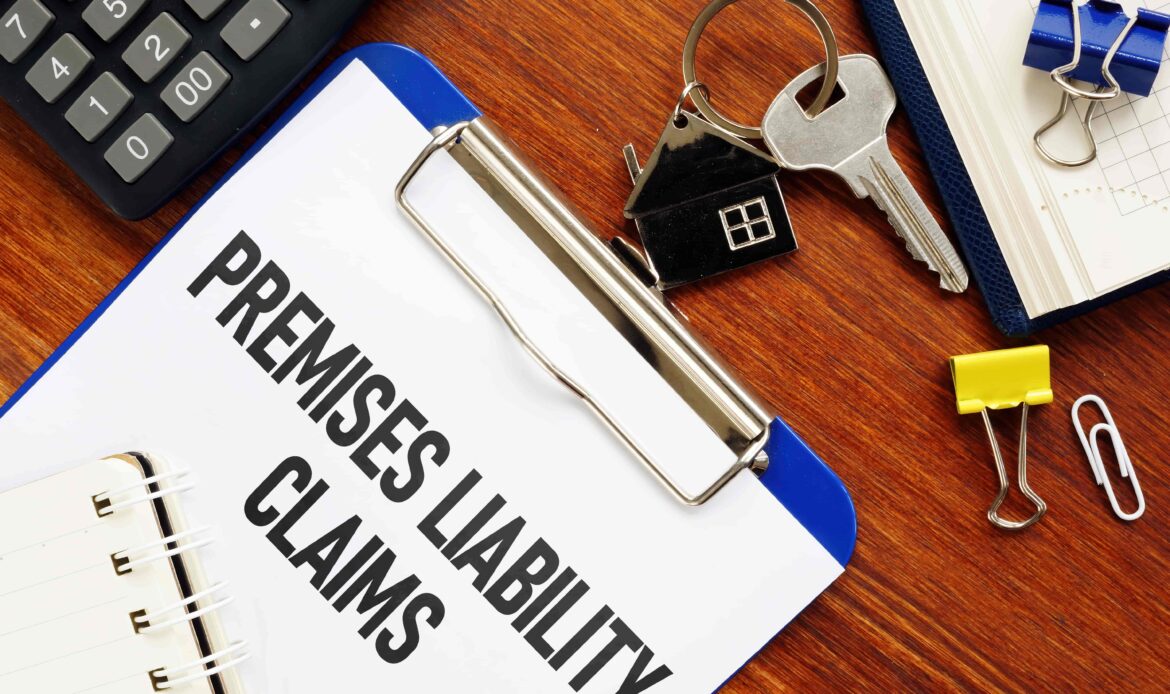
Sustaining an injury on someone else’s property does not automatically mean the owner is responsible. To have a valid premises liability claim, you and your legal team generally need to establish several key elements.
- A Duty of Care Existed: You must show that the property owner owed you a legal duty to maintain a safe environment. As discussed, this depends on whether you were an invitee, licensee, or trespasser.
- A Dangerous Condition Existed: There must have been a hazardous condition on the property, such as a wet floor, a broken stair, or a poorly lit parking lot.
- The Owner Knew or Should Have Known: This is a critical point. You need to show that the property owner either created the condition, knew about it and did nothing, or should have known about it through reasonable care and inspection.
- The Owner Failed to Act Reasonably: The owner must have failed to take reasonable steps to fix the danger or adequately warn visitors about it.
- The Failure Caused Your Injury: You have to prove a direct link between the dangerous condition and the injuries you sustained. This is known as causation.
Successfully demonstrating each of these points is essential for holding a property owner accountable for the harm caused.
Compensation in a Premises Liability Case
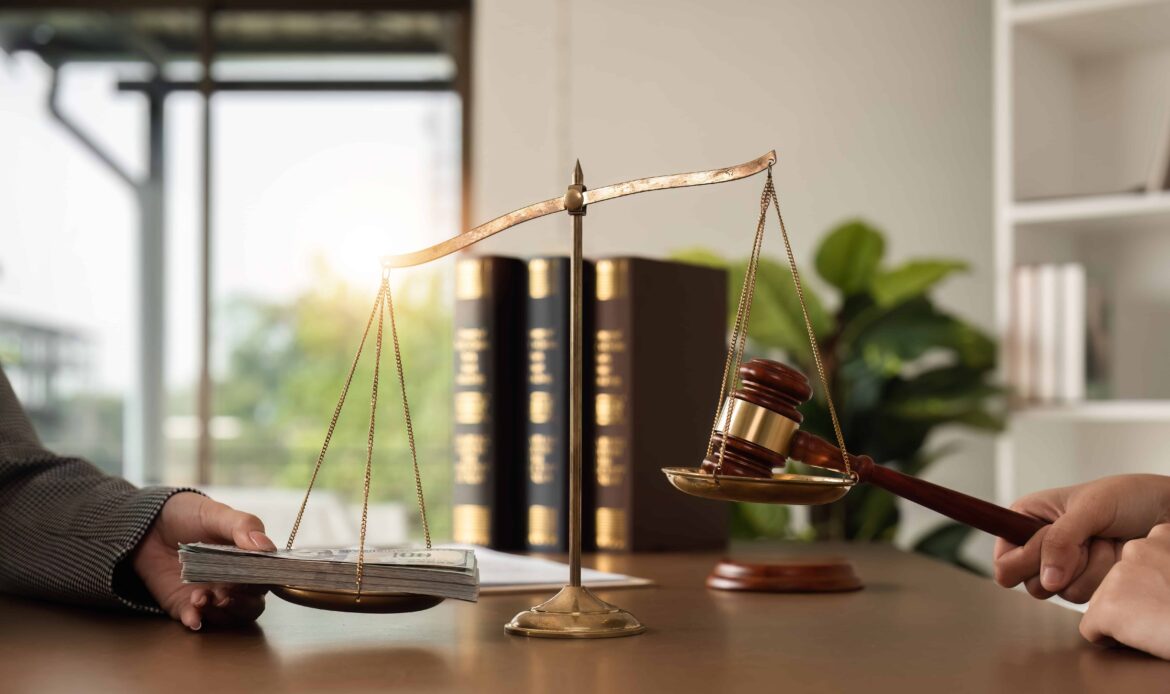
If you are successful in a premises liability claim, you may be entitled to recover compensation, often called “damages,” for the harm you have suffered. The goal of these damages is to help you get back to the position you were in before the injury occurred.
Compensation can cover a range of losses, including:
- Economic Damages: These are tangible financial losses that can be calculated. They include all past and future medical bills, lost wages from being unable to work, and loss of future earning capacity if your injury affects your ability to do your job long-term.
- Non-Economic Damages: These are intangible losses that don’t have a specific price tag but are just as real. They compensate you for physical pain and suffering, emotional distress, scarring or disfigurement, and loss of enjoyment of life.
The specific amount of compensation depends on many factors, including the severity of your injuries and the total impact the accident has had on your life.
Premises Liability Accident FAQs
Here are answers to some common questions about injuries that happen on someone else’s property.
What if I was partly at fault for my accident?
Both Texas and Colorado use a “modified comparative fault” rule. This means you can still recover damages as long as you are not found to be 51% or more responsible for the accident. However, your total compensation will be reduced by your percentage of fault.
How long do I have to file a premises liability lawsuit?
Every state has a deadline, known as the statute of limitations, for filing a personal injury lawsuit. In both Texas and Colorado, the deadline is generally two years from the date of the injury. Failing to file within this period usually means you lose your right to seek compensation.
What if I was trespassing when I was injured?
A property owner’s duty to a trespasser is very low. In most cases, an owner is not liable for injuries to a trespasser unless they intentionally caused the harm. The major exception is for children who are injured by an “attractive nuisance,” like an unfenced swimming pool, that the owner should have known would attract kids.
Is the property owner always the one responsible for an injury?
Not always. In some cases, a third party may be responsible. For example, if you are injured in a store, the property management company, a maintenance contractor, or a tenant leasing the space could be liable, in addition to or instead of the property owner.
Slingshot Law: Trusted Premises Liability Lawyers
Dealing with an injury is difficult enough without the added stress of a legal fight. If you’ve been hurt because of a dangerous condition on someone’s property, you deserve a fair fight against the insurance giants. At Slingshot Law, we believe every person is entitled to strong advocacy. Our background as former prosecutors and military officers instilled in us a duty to help people when they need it most.
We want to be the game-changing weapon in your battle. Let us handle the fight so you can focus on getting back on your feet. Contact Slingshot Law today at (866) 647-1311 or through our online form for a free case review with our experienced personal injury team in Austin, Texas, and Grand Junction, Colorado.
